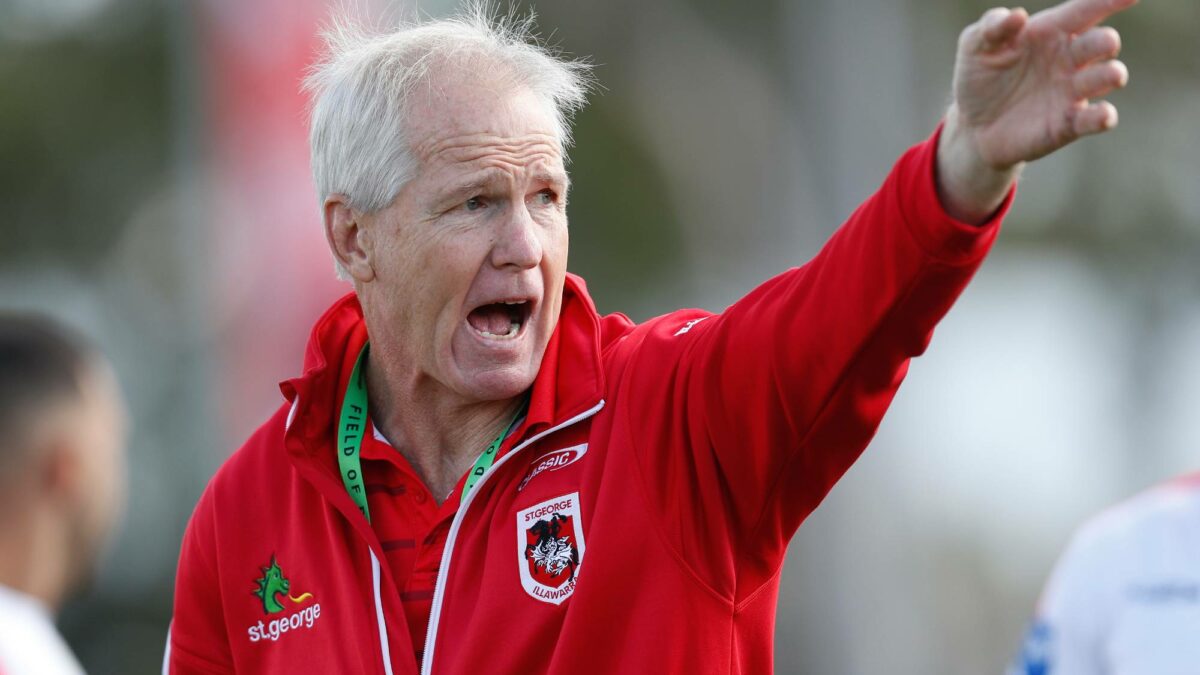
His recently released book, The Change Room, is more about his failures and the ways he has learned to redress his life after more than 30 years as a player and coach.
When he first sat down to write the book a few years ago, he pulped it before it even hit the printers, not liking what he had come up with.
Second time around, he’s incorporated the wisdom of what he’s learned from being in a professional sporting environment and how that applies to the real world.
It’s all part of The Change Room business he co-founded five years ago, an initiative which delivers interactive health and wellbeing programs to people from all walks of life, from boardroom directors to tradies, corrective services and police officers, people suffering post traumatic stress disorders, burnout and all sorts of issues.
Originally from Townsville, Elliott played 62 first-grade matches for St George in the back row from 1989-92, his final appearance was in the Grand Final loss to the star-studded Broncos.
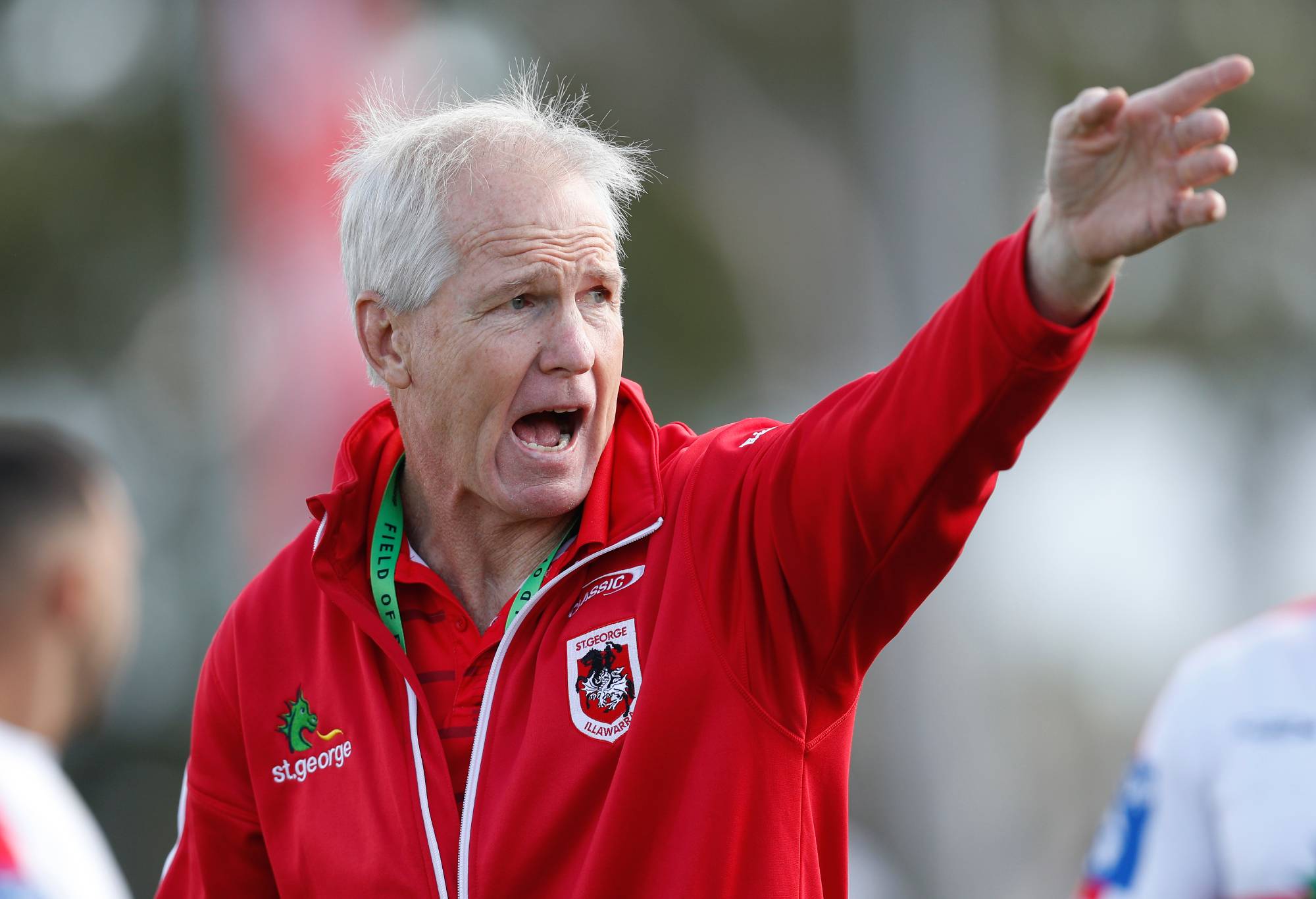
(Photo by Jason McCawley/Getty Images)
He made his name as a coach, rising to prominence with Super League club Bradford in the late 1990s, before linking with Canberra in 2002 for a five-year stretch which included four trips to the playoffs.
Lured to Penrith, he had three seasons of struggle before taking the Panthers to second spot in 2010 but was shown the door midway through the following season and after a 29-game stint at the helm of the Warriors he has been happily out of the coaching limelight.
An enlightening part of ABC Radio’s rugby league commentary since 2015, he dipped his toe back into the coaching water last year as St George Illawarra’s assistant coach before switching to a role as the clubs leadership culture and mindset coordinator.
And you can tell when you speak to Elliott that the art and science of empowering people with leadership skills is what brings a twinkle to his eye.
With the pressure on coaches, players and officials greater than ever and the issue again in the spotlight in recent years following the deaths of several players and coach Paul Green due to mental health battles, Elliott – who also has a sports science degree – is well placed to speak with authority on what can be done to ensure people are equipped to deal with stress.
And the best thing he says about all his advice is that it doesn’t cost a thing.
His three pillars of improving physical wellbeing, greater mental clarity and higher emotional resilience can all be done using methods that are free and available to anybody with an open mind.
Writing the book – take two
Elliott’s book is a collection of thoughts setting out his recommendations in the pursuit of happiness.
Each chapter is short and to the point with titles such as “Pint glasses for arse” and “The sweet spot & the shit spot”, he mixes in tales from his coaching days with empirical evidence to show what we should all be doing.
The self-published book, which has become a bestseller in the sports psychology category in a short space of time, would all seem a bit evangelical if it wasn’t so self-deprecating and honest.
Elliott writes about the mistakes he made, particularly when he was unable to separate the intensity of being an NRL coach when he stepped out of the team bubble into his personal life and how that affected relationships along the way.
“Four years ago I finished writing a book and it was all ready to be published, and I read it and it was just very content heavy. I wouldn’t say the content was bad but it was a bad read,” he said.
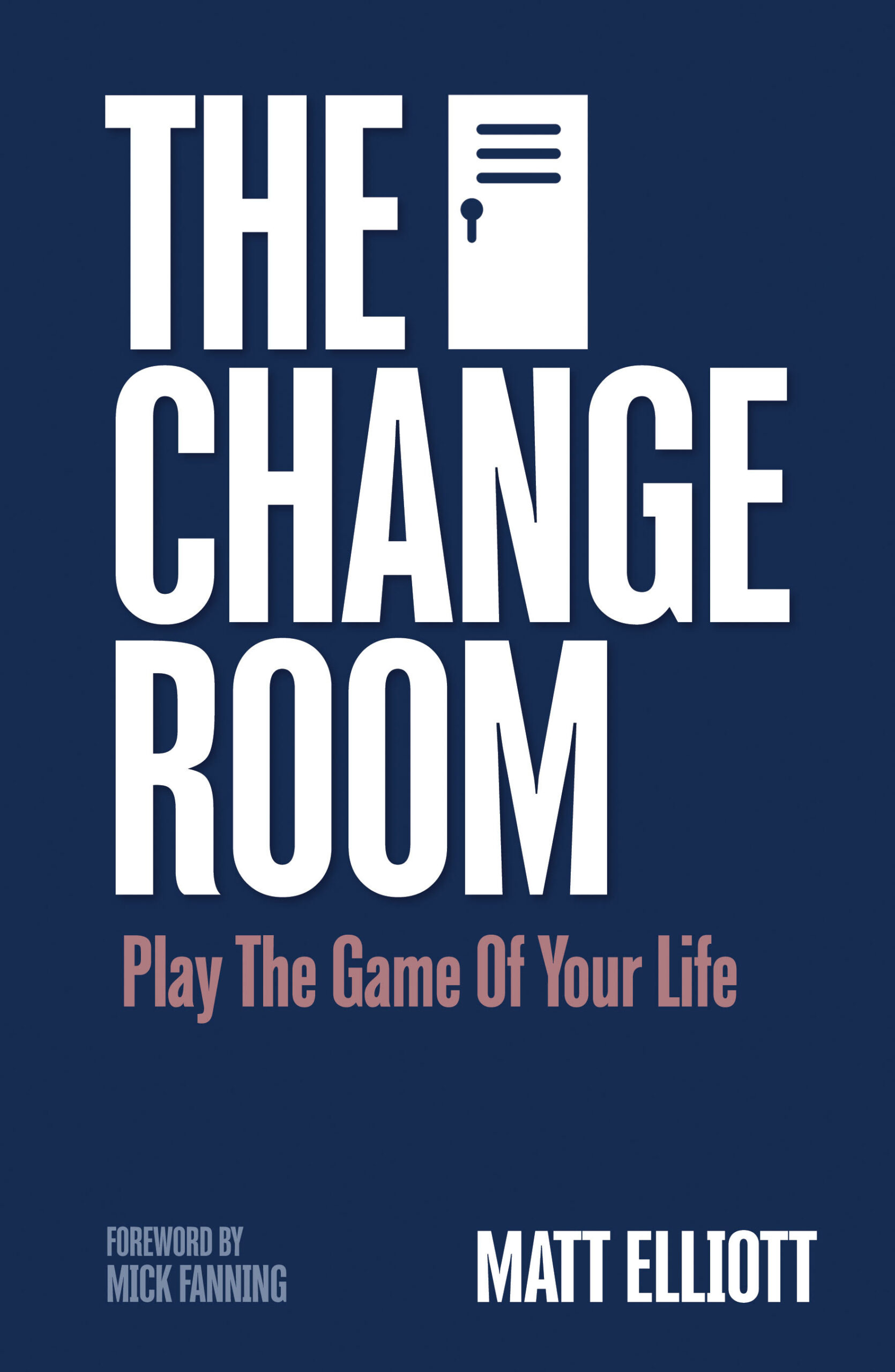
“I really wanted to make it useful – that’s the first thing about it. I wanted it to be a simple read as a game plan for life.
“The real motivation behind it was after coming out of coaching and starting a wellbeing business I had – because I’d been exposed to what they called high performance, which is a tricky way of saying human performance – for such a long time I kinda learnt that people think they don’t have access to that approach in their own life.
“It’s just what athletes do, it’s just what high performance is, which is not true. I’ve got a sports science degree but my biggest qualification is being involved in elite sport.
“If you’re a cynic about this, a lot of the things that are shared in the book won’t cost you anything extra to do. You don’t need to go to the best gym in the world or pay overs for food.
“Things like learning how to breathe properly, being able to regulate your own state just by remembering stuff and your hormonal state and how your body can be impacted by that, are all things that you learn in the high-performance environment that people don’t think they have access to.”
Breaking down the foundations for success
Elliott, in the book, details the behavioural foundations that define us.
How we are:
Feeling
Thinking
Breathing
Sleeping
Eating
Exercising
Moving
and, most importantly, if we want to live a long life, connecting to people.
“That’s the biggest cause of longevity on the planet – research in these areas called blue zones, there’s six of them around the planet with the highest concentration of people over 100.
“Geeks like me went there to find what the common denominator was. The biggest similarity was human connection – in all these places would have cross generational meals. They were around people where they knew they felt safe, which is a basic human instinct.
“That’s how the business started and the book was about getting that message out to more people.”
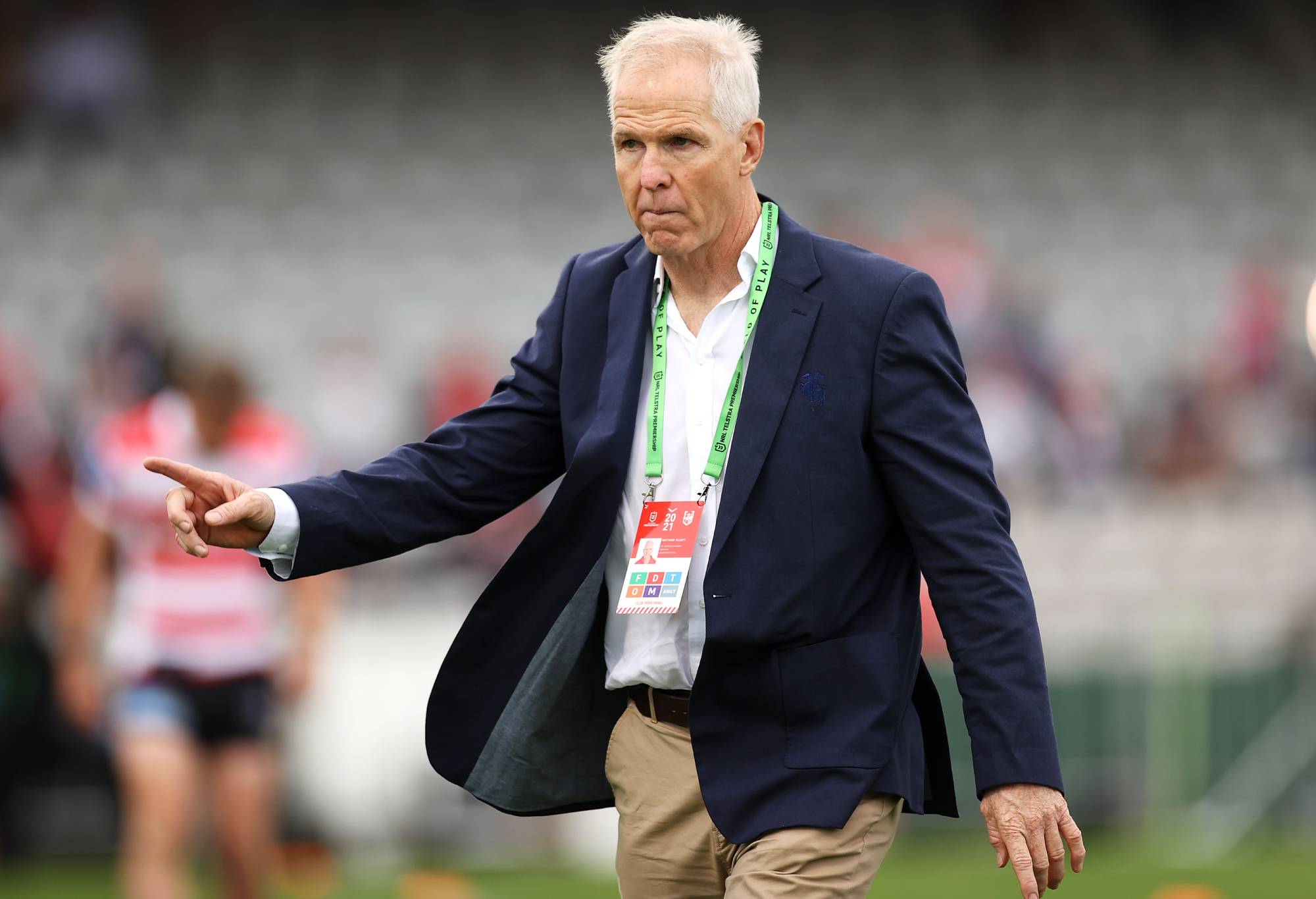
(Photo by Mark Kolbe/Getty Images)
Extending the Change Room metaphor, he writes about having an emotional and mental kitbag as well as a physical one, delves into the importance of healthy eating, breathing, journaling and meditation.
After meeting breathing expert Nam Baldwin, he introduced the technique to the Warriors during his stint at the club in 2013-14 – when the team started to do group breathing exercises on the field after scoring tries it was seen as extraordinary but now it’s commonplace in the NRL, AFL and the State of Origin arena.
Elliott credits one of his fellow mentors at The Change Room, retired Roosters star Anthony Minichiello “for pretty much saving my life” during his stint at the club as an assistant coach a decade ago.
The fullback introduced him to the benefits of a different way to approach food and Elliott said it cured his auto immune disease.
Through his Change Room seminars, Elliott deals with many people who are there because they’ve been required to do so due to work or insurance reasons.
The way Elliott breaks down his philosophy to get through any barriers he encounters is to say wellbeing and high performance are inter-related. You can’t have one without the other.
“That’s what we do in the corporate world, we’re there to elevate their wellbeing to increase their productivity and it makes the workplace a happy place to be there,” he said.
“We’ve had people who are resistant to it but that’s the exception, not the rule.
“The feedback to the book so far has been great. People seem to be taking it on board. It’s not giving people knowledge, it’s giving people access to knowledge.
“One thing I’ve learned from being a footy coach is information is great but it’s no good if people can’t work out what you’re talking about.”
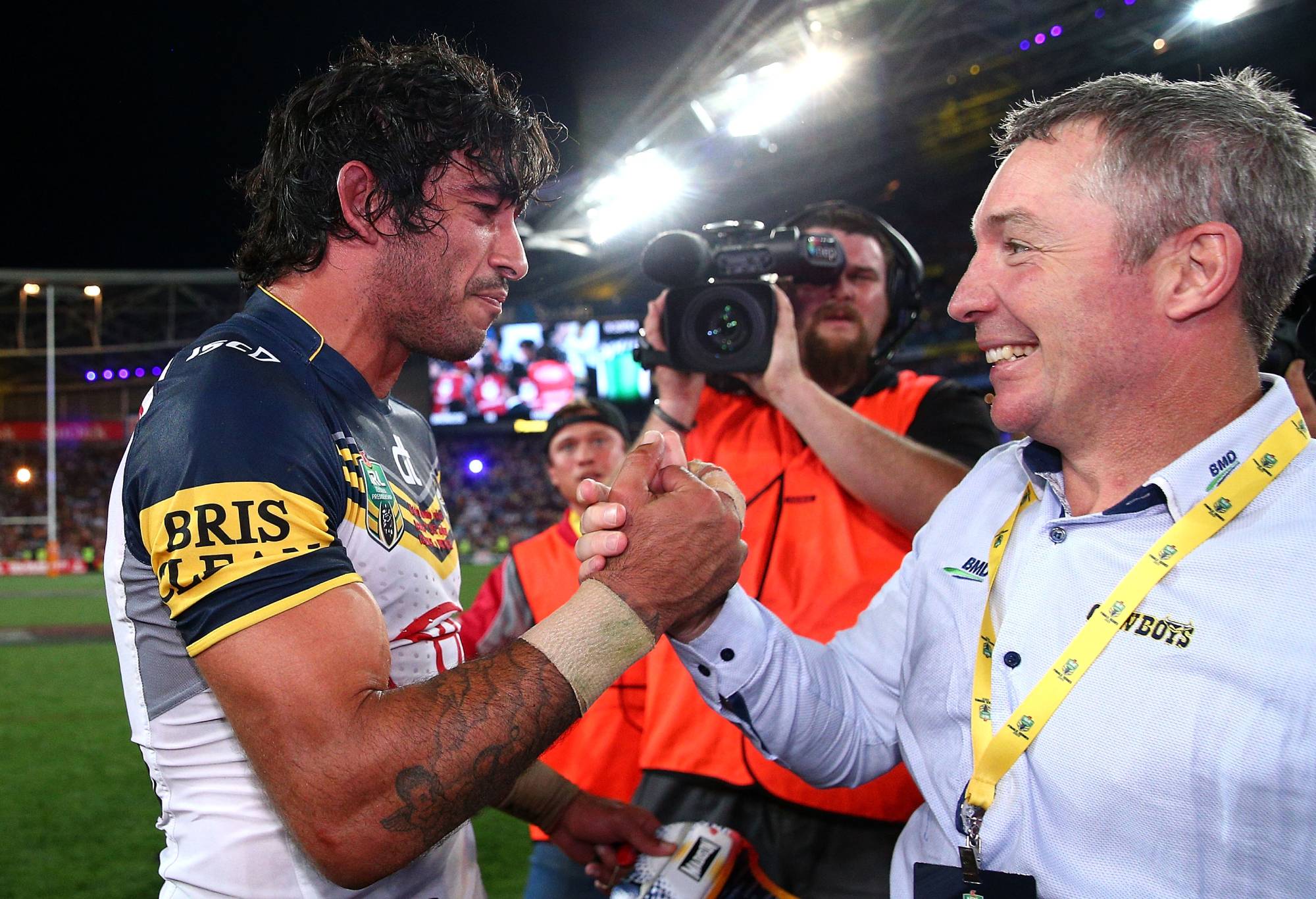
Paul Green celebrates his finest moment as a coach, North Queensland’s 2015 Grand Final win with Johnathan Thurston. (Photo by Cameron Spencer/Getty Images)
Modern-day pressures in elite sport
The recent death of Paul Green has again shone the spotlight on the pressure of being in elite sport and how it can have a dramatic effect on mental health.
Elliott, who coached against Green, applauded the attempts by the NRL and mental health advocates to get people to speak up when they are struggling to deal with their emotions, particularly the stereotypical Aussie bloke who shuts everything down.
But he believes much more is needed because, no matter what, many men and a large percentage of women will refuse to acknowledge such problems to anyone else.
He pointed to a recent study from the UK which found that 74% of men and 59% of women “under no circumstances will they speak up”.
“They don’t want to be a burden to their family and they don’t want the embarrassment,” he said.
“I agree with the sentiment that you need to speak up when you need help, that’s great but you’re not talking about the majority of people. We’re all so genetically wired that way that it’s our job to protect our family that you can’t show weakness.
“Unfortunately since a lot of these organisations have started and have a look at the worst outcomes of suicide, we’re not getting better, we’re getting worse. My strong belief is that [speak up campaign] needs to remain, it is saving lives, but it’s not an integrated approach.”
Elliott said from working with thousands of first responders that people who confess they were “struggling a couple of months ago” can turn their mental health around by fixing basic issues such as sleeping, eating and breathing better.
“What we do is give them a little bit of separation and momentum from how they were feeling,” he said. “When you’re at rock bottom, it’s not hard to make them feel better because they’re in the shit zone.
“People start talking about how they were, not how they are. If you integrate that with speaking up, you will get results but we’re not like that at the moment.”
Dealing with scourge of social media trolls
Elliott was fortunate that his head coaching career was pretty much over by the time social media platforms like Twitter had taken off in Australia.
Anonymous trolls spewing hatred towards athletes, coaches and officials is a problem which is getting worse with several NRL players being subjected to death threats in recent years.
Like he does with most topics, Elliott looks at this dilemma from a different perspective but is ultimately pragmatic about dealing with it.
“Pressure is expectation plus scrutiny,” he said. “If you look at social media now, expectation to perform is the same as it’s ever been but scrutiny has gone way up.
“People are on it all the time, the consequences are you get the adulation as well as the criticism. I don’t think people are too interested in analysis anymore – they’re interested in ‘this is a joke’ and ‘these people should get the sack’, blah blah, blah.
“There’s nothing in life of consequence that can’t be achieved unless there’s pressure on it. But it’s there all the time now, the frequency has gone up because you can’t escape it if you’re always on your phone.
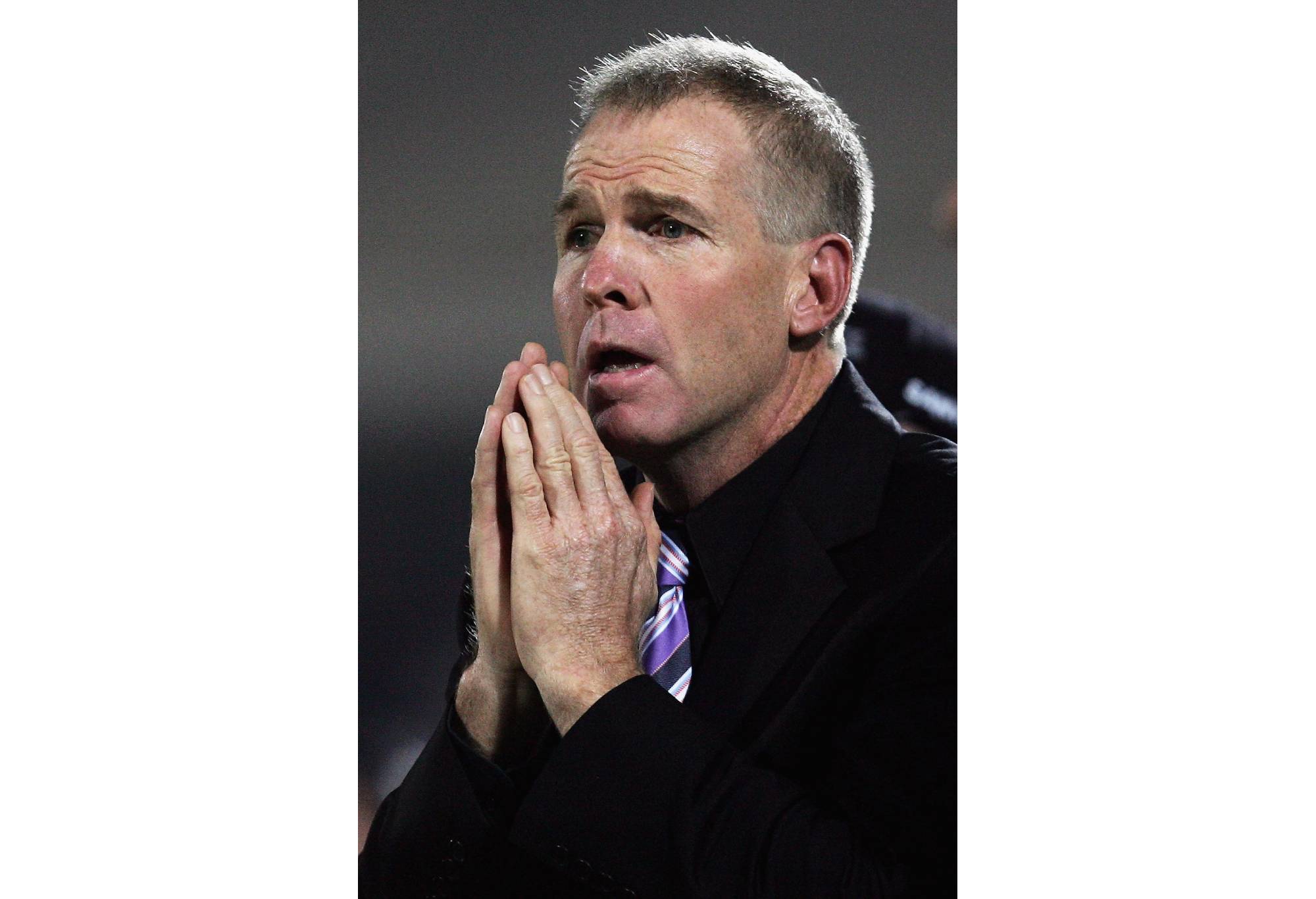
Matt Elliott watches from the sidelines during his stint as Panthers coach in 2007. (Photo by Quinn Rooney/Getty Images)
“It’s elevated on your family and all the people around you. It used to be that you had to make a conscious decision to look online but now it’s the opposite.”
He wouldn’t recommend players get off social media altogether, which the likes of Blues coach Brad Fittler and Immortal halfback Andrew Johns have recently advocated.
“I’m more on the side of forewarning the players early. If you’re going to be an NRL player you’re not a normal part of the community. Sorry, but you’re not,” he said.
“You’ve got to realise that people are going to write stuff that has got nothing to do with you. It’s got your name on it but it’s got everything to do with them and their opinion.
“You need to go through a real robust education system that needs to be revisited so that you’re aware of this. You’re not going to get through your NRL career without a bad loss or a bad period and that’s what you’re going to have to put up with.
“It’s a great job but if you don’t want to be subjected to that, go find something else to do. I wish there weren’t [trolls] but it doesn’t matter what I wish, somehow the scrutiny on expectations is probably going to go up.”
The Change Room is on sale for $28.59 via Amazon

Leave a Reply